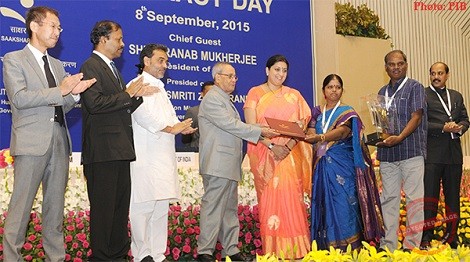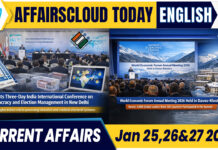On the occasion of International Literacy Day, President of India, Shri Pranab Mukherjee presented the Saakshar Bharat Awards 2015 in a celebration organized by Union Ministry of Human Resource Development (HRD).
On this occasion, our honorable President stated that there is a need for greater societal involvement in achieving higher literacy target. In order to enable us fulfill the dream of ‘Sakshaar Bharat’, ‘Swachh Bharat’ and the ‘Dream Bharat’, we must follow progressive strategies such as ‘each one, teach one’. He also added that we must also ensure that the gender gap in literacy should not be more than 10 per cent.
Accordingly, the President congratulated all those who had received Saakshar Bharat Awards for their outstanding contribution to the adult literacy programme and said without literacy it is not possible to bring about total empowerment and find our rightful place in the comity of nations.
Progress of our Country:
The present literacy scenario in India is quite encouraging at least as per the latest Census report. In 1951, when first Census after Independence was conducted, the literacy rate of India was merely 18%. However, in the last Census held in 2011, we have achieved a literacy rate of 72.98%. The present national goal is to achieve literacy rate of 80% by end of 12th Plan Period. But it is true that we are way behind some of our South Asian neighbors in this regard.
Significance:
The concept and goal of literacy need to be revisited and reoriented in the light of current global thinking. The roads to sustainable societies always pass through literacy and education and quite frankly it has been well recognized widely. Literacy and education are amongst the most important Millennium Development Goals and are critical in achieving goals of poverty reduction, health for all, sustainable environment, gender equality and empowerment which requires preferential treatment. Furthermore, the plan of action for eradication of illiteracy should not only focus on the tangible aspects of literacy but also probe into its intangible and intrinsic aspects.





